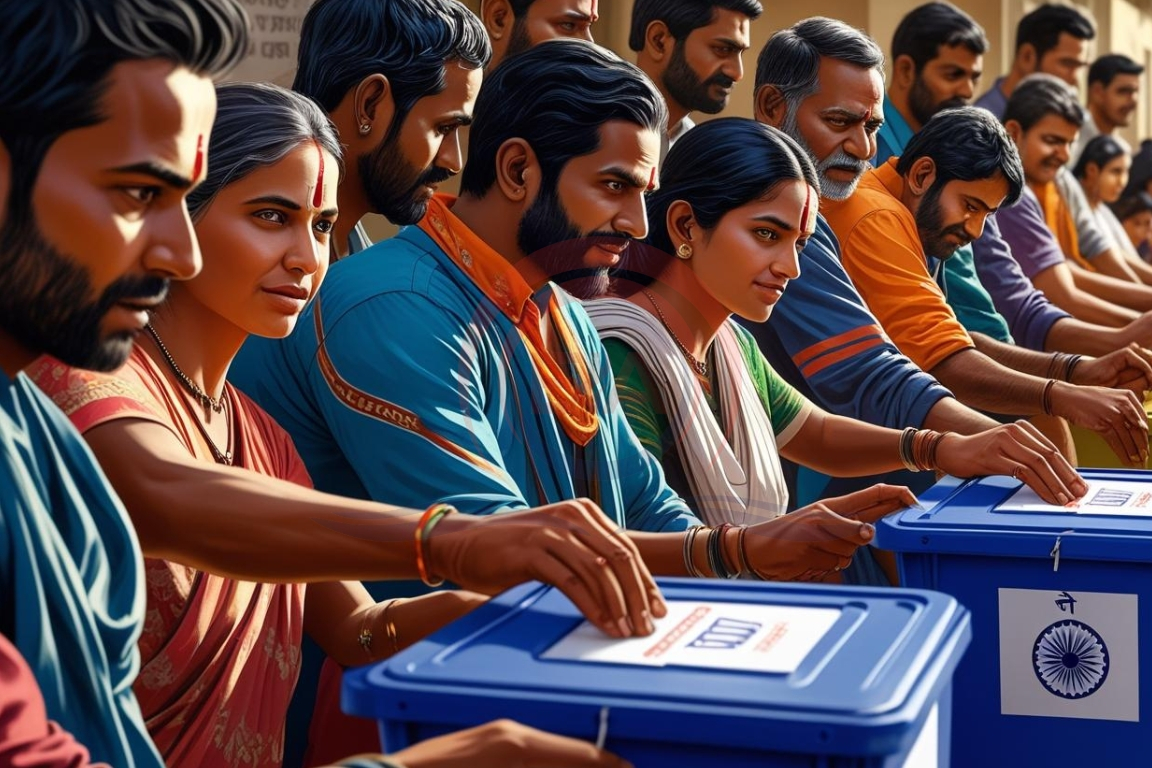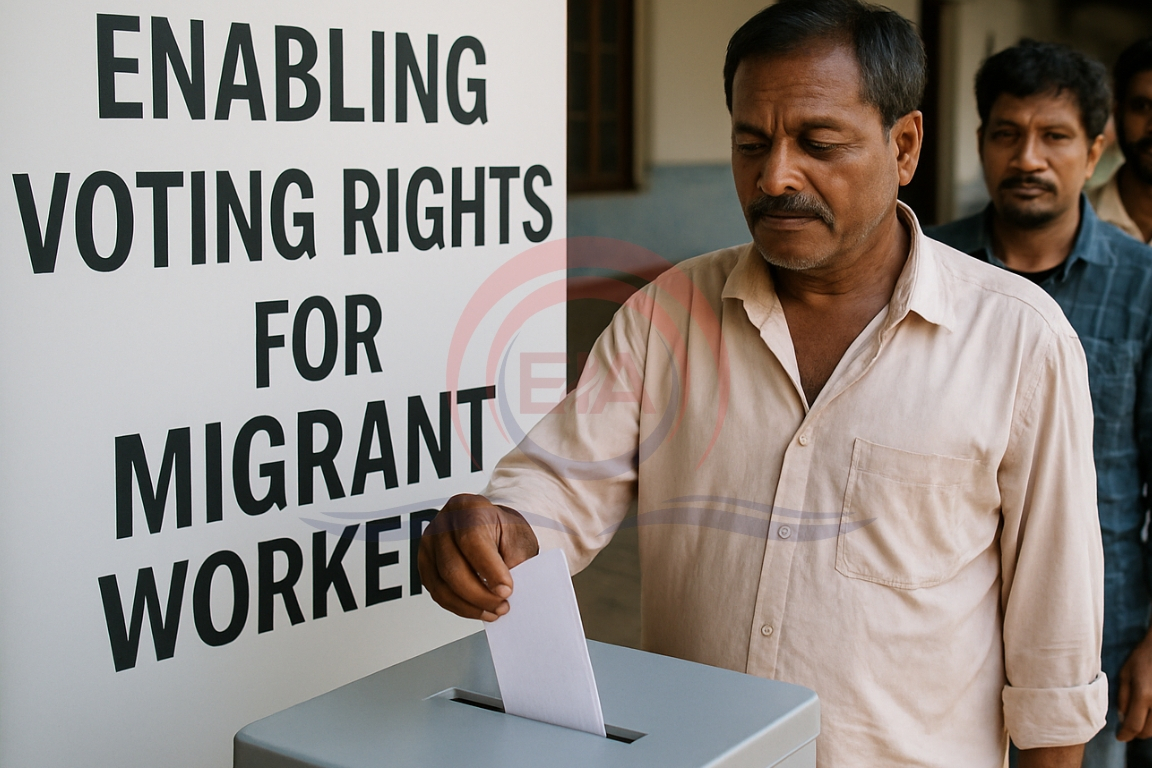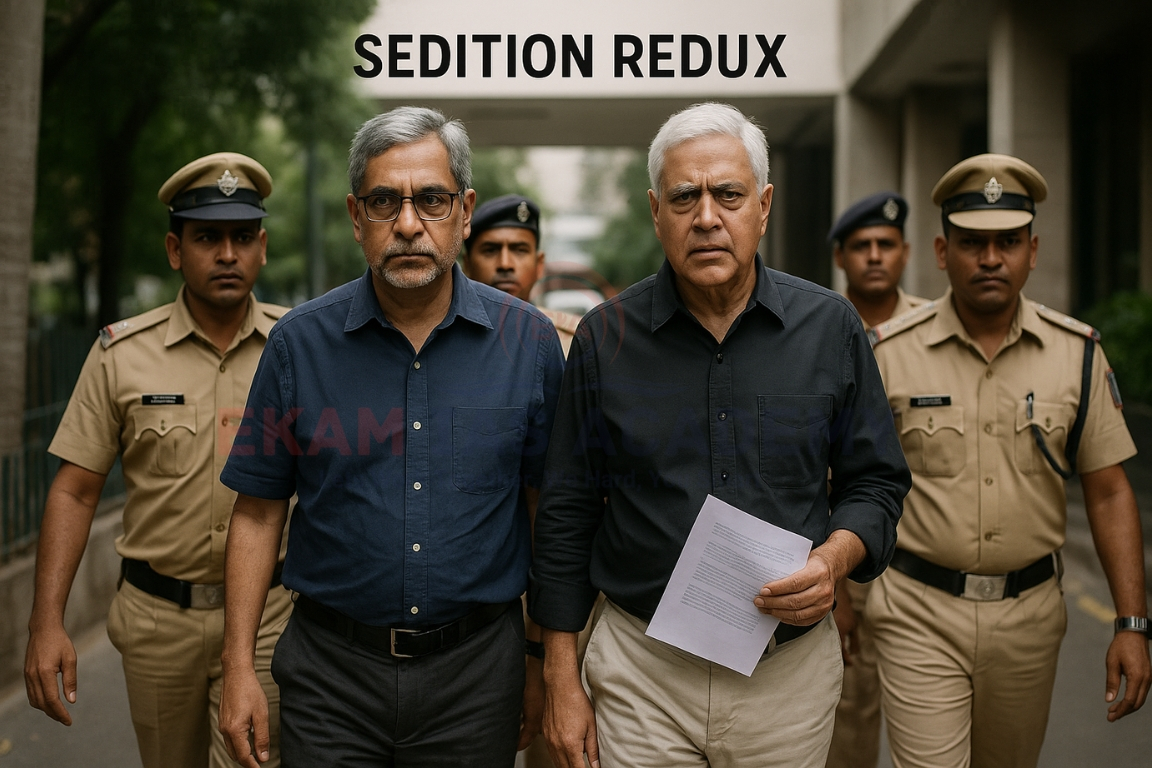Bihar is heading for Assembly elections in 2025, but a large section of its migrant population is likely to miss voting due to lack of systems that enable voting from outside their home constituency.
Migration and Its Impact on Voting
- Low Voter Turnout: In Bihar, voter turnout was only 56% in 2024 compared to the national average of 66%. Migration is a key reason behind this gap.
- Extent of Migration: As per 2021 data, nearly 29% of Indians are migrants. While most women move for marriage, about 10% migrate for work — a significant number in labour-exporting states.
- Effect on Democracy: Migrants who cannot vote at their place of origin are left politically unrepresented, weakening democratic participation.
Possible Solutions for Migrant Voting
Support for Intra-State Migrants
- Short-Distance Travel: These workers can return home to vote if logistical support is provided.
- Action Steps: Enforce paid leave on polling day. Arrange special buses for polling-related travel.

Remote Electronic Voting Machines (RVMs)
- Pilot Project by ECI (2023): Modified EVMs can cater to up to 72 constituencies.
- Challenges:
- Opposition from political parties due to technical and legal uncertainties.
- Administrative burden of locating and registering migrants ahead of time.
- Difficult to scale during large elections like Lok Sabha polls.
Postal Ballots for Migrants
- Inspired by Armed Forces Voting: Postal ballots can be extended to migrants.
- Pros: Less complex than RVMs.
- Cons: Needs advanced registration and logistical planning for ballot dispatch and counting.
Change of Voting Constituency
- For Long-Term Migrants: Migrants who live in a new area for 6+ months should be allowed to register there.
- Benefit: Encourages their participation in local governance and policies.
- Challenges: Possible resistance from local residents fearing vote dilution.
Special Focus on Women Migrants
- Women who migrate after marriage often miss voting.
- Special enrolment drives should be carried out in their new homes.
Conclusion:
To ensure inclusive and fair elections, India must adopt a mixed strategy involving RVMs, postal ballots, travel support, and enrolment drives to empower migrant workers with the right to vote wherever they live or work.





